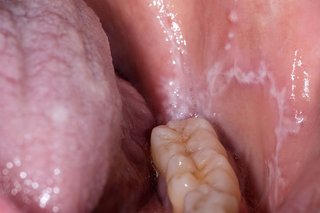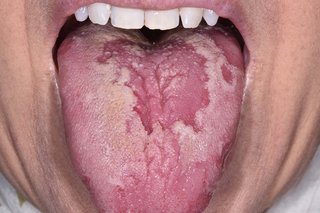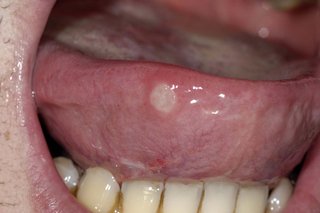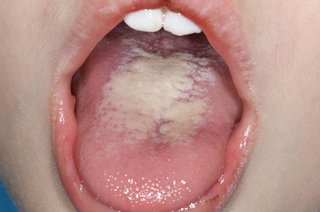Sore or white tongue
A sore or white tongue is not usually serious and is often easily treated.
Things you can do if you have a sore or white tongue
Do
-
use a soft toothbrush to brush your teeth
-
brush your tongue or use a scraper to help improve a white tongue
-
use a straw to drink cool drinks
-
take paracetamol or ibuprofen
Don’t
-
do not use a toothpaste that contains sodium lauryl sulphate
-
do not eat spicy, acidic or hot food and drink that may irritate your tongue
-
do not smoke
-
do not drink alcohol
A pharmacist can help with a sore or white tongue
You can ask a pharmacist:
- what's causing your sore or white tongue
- if you can buy anything to help with any pain or irritation
- if you should see a dentist or GP
Non-urgent advice: See a GP or dentist if:
- you have tongue pain or itchiness that does not go away or gets worse
- you have white patches on your tongue
Common causes of a sore or white tongue
Biting or burning your tongue with hot food or drink can cause pain and swelling. This should only last a few days.
A white tongue can be a sign of a health condition, such as anaemia, scarlet fever, lichen planus, leukoplakia, geographic tongue, mouth ulcers or oral thrush.
But do not self-diagnose. See a GP if you're worried.
Lichen planus

DR P. MARAZZI/SCIENCE PHOTO LIBRARY https://www.sciencephoto.com/media/641882/view
Read about lichen planus.
Leukoplakia
Read about leukoplakia.
Geographic tongue

DR P. MARAZZI/SCIENCE PHOTO LIBRARY https://www.sciencephoto.com/media/832122/view
Find out more about geographic tongue on the Oral Health Foundation website
Mouth ulcer

DR P. MARAZZI/SCIENCE PHOTO LIBRARY https://www.sciencephoto.com/media/115960/view
Read about mouth ulcers.
Oral thrush (mouth thrush)

DR P. MARAZZI/SCIENCE PHOTO LIBRARY https://www.sciencephoto.com/media/81735/view
Read about oral thrush (mouth thrush).
Page last reviewed: 16 May 2023
Next review due: 16 May 2026